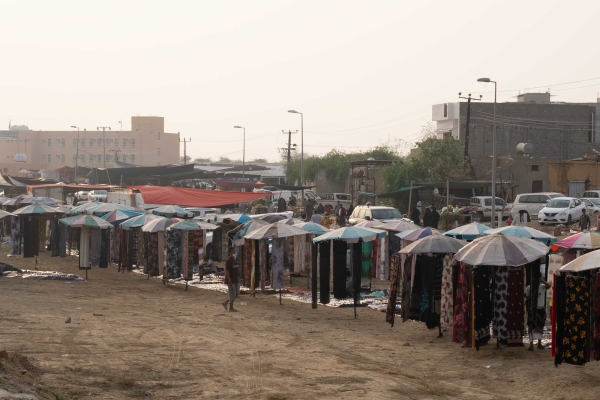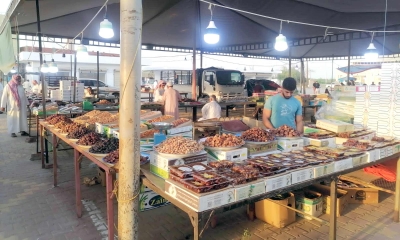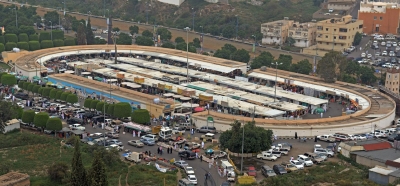

Traditional Markets in Jazan Province are an economic activity that simultaneously reflects the social, cultural, and architectural heritage of the Kingdom of Saudi Arabia. These markets can be either open or partially/fully enclosed sites where various segments of society, of all ages, come together. A variety of goods and products are traded in these markets, including traditional and handcrafted items, local foods, and aromatic plants.
Traditional market activities in Jazan Province
The weekly traditional markets in Jazan Province are a cornerstone in promoting and stimulating tourism in the province. These markets are an economic phenomenon characterized by a diverse range of offerings that showcase the lifestyle, customs, and traditions of the local people.
The activities in Jazan Province's traditional markets are diverse, and their offerings include dates, seasonal products, firewood sales spots, Bedouin tents, camping supplies, used furniture, hardware, birds, pets and non-pet animals, reptiles, livestock, and more. The markets are also rich in traditional handicrafts and industries, showcasing the social and cultural heritage of the province. These markets are designed to create an architectural blend that integrates the past with the present. Historically, Jazan Province has been known for its economic and tourist diversity through its traditional markets, which culturally represent architectural heritage sites.
Patterns of traditional markets in Jazan Province
Similar to most traditional market patterns in the southern provinces, the traditional markets in Jazan Province follow two main styles: al-Mastara and the open space style. Al-Mastara style is characterized by a straight line of adjacent shops aligned in a single row, with a central square where activities from nearby villages are showcased. The open space style features temporary, non-connected huts arranged around a common central square in the middle of the market.
Distribution of traditional markets in Jazan Province throughout the week
The traditional markets in Jazan Province are spread out over the days of the week, with each governorate having a designated market day known as 'al-Waad.' These markets have become known by their specific days. For example, the market in Baish Governorate is held on Saturdays, the market in Sabya Governorate is held on Tuesdays, the market in Abu Arish Governorate is held on Wednesdays, and the market in al-Khawbah is held on Thursdays. Additionally, there are weekly markets in various other governorates and centers.
Some traditional markets in Jazan Province
Al-Khawbah Market in Jazan Province, also known as Thursday Market, is one of eight traditional markets targeted for development as tourist, heritage, and cultural sites at the national level. The market welcomes shoppers every Thursday morning and is named after al-Khawbah City, the administrative capital of al-Hurrath Governorate, located ninety km southeast of Jazan City. The market offers a variety of products, including pottery and ceramic tools, aromatic plants, traditional fabrics and clothing, pure cow ghee, and various types of honey.
The internal market in Jazan City is one of the prominent and oldest commercial landmarks in Jazan Province. It has been the commercial heart and engine of Jazan for decades, bustling with activity throughout the year. Its commercial activity reaches its peak with the arrival of Ramadan Month.
The market has maintained its commercial significance among shoppers despite the expansion of modern shopping malls. The market squares are constantly bustling with sellers and buyers, reinforcing its importance in the lives of Jazan City residents and the province in general, by providing a variety of goods and household items and earning a reputable standing among the population.
Similarly, 'Abu Arish' traditional market thrives with continuous commercial activity on its weekly day, 'Wednesday'. This market has preserved its economic status amidst modern markets and retained its popular and heritage value among the weekly traditional markets spread across the province's governorates.
Related quizzes

